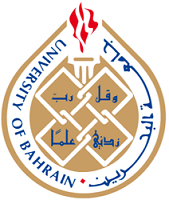Abstract:
Kingdom of Bahrain has formally adopted environmental impact assessment (EIA) process to address environmental aspects within development projects. Energy intensive projects such as those within oil and gas sector, petrochemicals, and power plants etc. have to go through EIA process before being approved.
The oil and gas sector is a significant consumer of energy and one of the largest emissions producers. Therefore, it is important to incorporate EIA process in the context of industrial project life cycle to ensure that environmental aspects are considered thoroughly. Furthermore, the role of EIA in energy conservation and emission reduction in the Kingdom Bahrain has not been investigated before. In addition, generation of alternatives is an area of improvement in EIA process in the Kingdom.
A framework that aligns implemented EIA process in the Kingdom of Bahrain with oil and gas project life cycle approach was formulated. The framework was formed by investigating implemented environmental regulations and procedures. The quality of selected EIA reports was investigated by preforming a critical review against adopted evaluation criteria. A case study of oil processing unit was provided to demonstrate how process integration could be used as an enabling tool for EIA that aids the selection among alternatives based on energy efficiency and emission intensity. The case study compared between two alternative designs of atmospheric distillation unit by conducting energy analyses to determine the most energy efficient alternative.
The framework revealed a potential for thorough consideration of environmental aspects during projects life cycle within oil and gas sector. Evaluation of EIA reports showed better consideration of emission aspects over energy aspects. From the evaluation, it is recommended to enforce legislations to ensure efficient use of energy within industrial sector, adopt strategic environmental assessment (SEA) practice in the Kingdom of Bahrain and link it to energy planning, and encourage industrial firms to adopt energy management system to play the role of follow up to EIA mitigation measures. The application of process integration in the case study demonstrated that it is an effective tool in raising energy efficiency and minimizing expected emissions at early stage of chemical process design and facilitates the selection among alternatives.

